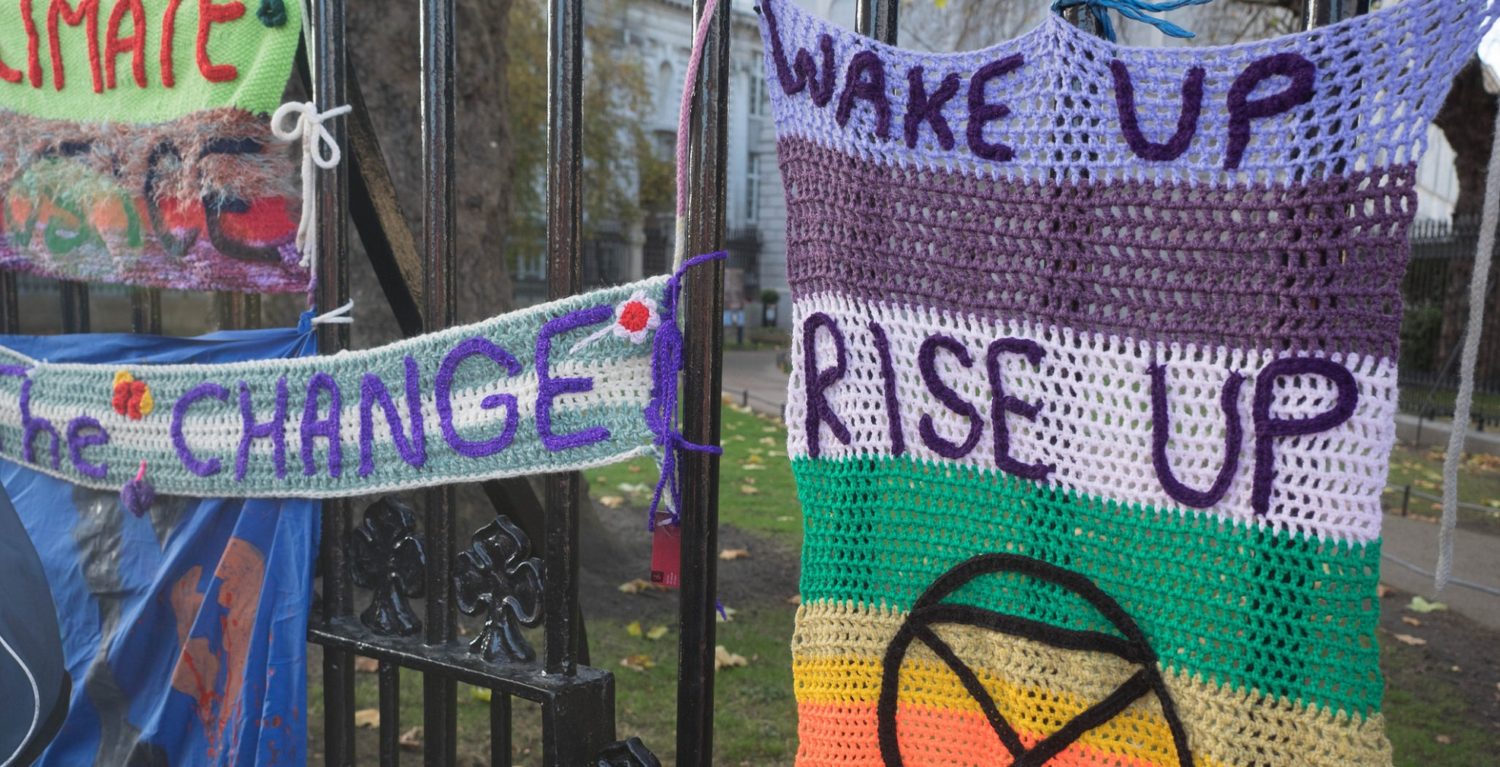Taking to the streets
In recent weeks we have seen a wave of protest from the European and American left. Chris Saltmarsh considers how a socialist Labour party should respond.
In recent weeks, the news has often appeared as a sharp juxtaposition. The Westminster-centric rigmarole of Brexit has often been set against the backdrop of escalating protest and street movements in Europe and the US.
In the UK, Extinction Rebellion has grabbed the headlines, calling for the declaration of climate emergency with a series of disruptive civil disobedience including blocking major roads and bridges. In parallel, the election of Alexandria Ocasio-Cortez to Congress, alongside a string of direct actions targeting the Democratic party establishment, have thrust the demand for a ‘Green New Deal’ into the mainstream of American political discourse. On a similar theme, but with a different tone, the gilet jaunes have caused a political earthquake in France and beyond, rioting against Macron’s neoliberal class warfare – specifically the implementation of a fuel tax. And whilst Tommy Robinson’s supporters have mobilised around grooming gangs, spurious appeals to free speech and Brexit, the anti-fascist left has responded with powerful mobilisations of its own. Then last week, the Stansted 15 were convicted under terror-related charges for successfully grounding a deportation charter flight in March 2017. Thousands mobilised in solidarity; their sentencing will take place in February 2019.
Other highlights of protest in 2018 include a series of direct actions around fracking in Lancashire and the conviction, imprisonment and subsequent release of three anti-fracking activists. United States feminists protested in the spirit of #MeToo against Brett Kavanaugh’s confirmation to the Supreme Court. Around 700,000 marched in London demanding a people’s vote to overturn Brexit.
Does all the agitation we have seen this year signal a growing mood for protest from the European and American left? What does this mean for a socialist Labour party? To fully understand the significance of this wave of protest, we should also examine what isn’t in the above list.
Although university tuition fees continue to rise, and the Tory government continues to inflict its ideological crusade (under the guise of austerity) onto the country, the free education and the anti-austerity movements have died down. They used to mobilise thousands, with action particularly militant at its peak. Despite continued imperialist warfare including in Yemen, Syria and Afghanistan, the anti-war and international solidarity movements have long been defanged. Though the crises these movements protested against still persist, one thing has changed: the Labour party is in the right place again.
Until 2015, most on the social movement-oriented left were somewhere between suspicious and outright dismissive of Labour as a vehicle for radical social change. Since Corbyn’s election as leader, it has become clear that demands to end austerity, make education free and restrain from starting any new wars are achievable with a socialist Labour government. The Tories may never properly concede those demands. So rather than protest, we should put our energy into electing a Corbyn-led government that will take action on these issues. With a booming membership surpassing half a million people, it’s clear that many have already subscribed to this logic.
Despite a tumultuous end to 2018, it is not clear then that the mood to protest is heightening. Not when we take the period since 2010 as our frame of reference. It is evident, though, that the subject of protest is shifting. As the Labour party absorbs organising against austerity and for services under public ownership, the issues currently on the protest agenda are larger in scale. We are seeing protests around the climate crisis, the rise of the far right, borders and migration, deeply embedded structures of racism and misogyny, and constitutional crisis related to the UK’s future relationship with Europe. These are transnational crises for which it may seem that the Labour party alone cannot provide a solution, and reasonably so. Or, in some cases, Labour’s position on them remains inadequate, incommensurate with their scale and urgency.
Labour in government might respond to this wave of protest by banning fracking and avoiding a Macron-esque ‘climate’ policy rooted in neoliberal class warfare, but a proportionate response to climate breakdown and its accompanying protest movements should be to work in solidarity with comrades across borders to equitably decarbonise the global economy.
The Labour party should also continue to throw its weight into street mobilisations against the far right, while articulating a transformative and universalist socialist politics that offers hope and delivers for everyone, including those most susceptible to the far right’s allure. Specifically, this means embracing a progressive platform of migration policies with a managed transformation of the border regime as well as ensuring the equitable regeneration and re-industrialisation of ‘left behind’ towns and cities. As the scope of Labour’s programme for transforming society shifts in this direction, so will the nature of protest, pushing it even further towards taking on the biggest global challenges of our time.

